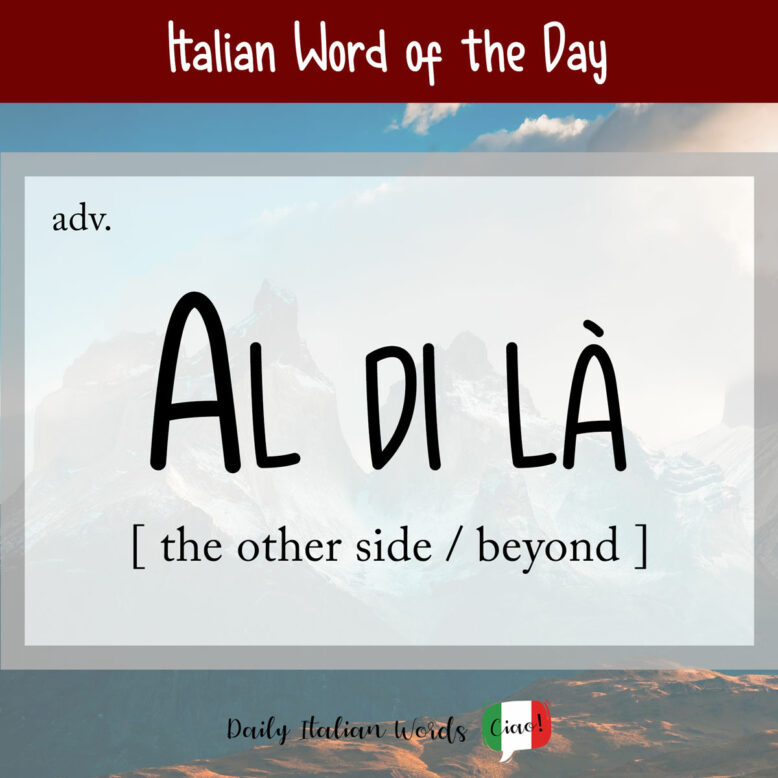Al di là is an adverbial phrase that translates as on the other side or beyond. It is made up of the following components:
- al = a (to) + il (the)
- di = of
- là = there or over there

Al di là c’era il deserto, immenso e dominato da dune enormi.
Beyond lay the desert, immense and dominated by enormous dunes.

When used as a preposition, it translates as on the other side. These days, the expression al di là (di) is often preferred to the traditional expression di là da.
Al di là del fiume, c’è una casetta.
Di là dal fiume, c’è una casetta.
On the other side of the river, there is a small house.
In addition to denoting a physical place located far away, al di là (di) can also be used figuratively to mean beyond, aside or regardless as in the following examples:
Al di là di queste controversie, è chiaro che abbiamo bisogno di maggiori informazioni.
These controversies aside, it is clear that we need more information.
Il bello di questo lavoro, al di là del fatto che mi permette di lavorare da casa, è che è molto soddisfacente.
The beauty of this job, beyond the fact that it allows me to work from home, is that it is very satisfying.
La notizia, al di là della sua veridicità o meno, ha danneggiato la sua immagine.
The news, regardless of whether it is true or not, has damaged his reputation.
It should not be confused with the noun aldilà, which is written as one word and refers to the afterlife or the hereafter.
Tu credi nell’aldilà?
Do you believe in the afterlife?

Heather Broster is a graduate with honours in linguistics from the University of Western Ontario. She is an aspiring polyglot, proficient in English and Italian, as well as Japanese, Welsh, and French to varying degrees of fluency. Originally from Toronto, Heather has resided in various countries, notably Italy for a period of six years. Her primary focus lies in the fields of language acquisition, education, and bilingual instruction.


